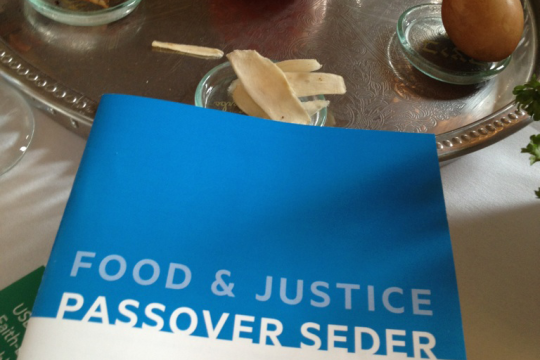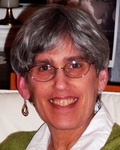
In 2014, Congregation Kol Ami in Elkins Park, PA, hosted a “Kindness Counts” conference that focused on welcoming LGBTQ Jews to the community. Recently, a small group of congregational leaders decided it was time for a second gathering, this time focusing on inclusion of trans and non-binary Jews in synagogue life.
We moved quickly. With approval from the rabbi and board, the three co-chairs – two of whom are trans activists and one of whom is also trans – assembled a planning committee and “Kindness Counts Bet: Moving Beyond the Gender Boxes, Embracing Transgender and Non-Binary Jews, Their Loved Ones and Allies in the Mishkan” was born.
Next, we revisited the mission and vision statement from the original conference and updated it for the new one, asking and answering these and other questions:
- What are our goals?
- How will we accomplish them?
- What is our budget?
- What is the Jewish framework?
- What about the format for the day of the conference?
- What’s the difference between “welcome” and “inclusion?”
- Who will teach?
- What does transgender and non-binary mean anyway?
- How can we market this gathering?
Together with our co-sponsor, J.PROUD, a community-building organization for Jewish LGBTQ individuals and families in greater Philadelphia, we planned to focus on the “T” (gender, rather than sexuality) in LGBTQ, striving to create a vibrant space in which participants from synagogues throughout the region, across movements, and of all genders and gender expressions could learn about “inclusion” and how it differs from “welcome.”
Jewish values (midot) and commandments (mitzvot) would guide the content of the programming. Some examples include hachnasat orchim (welcoming the stranger), cheshbon hanefesh (taking account of oneself and one’s relationship with God, b’tzelem Elohim (all are created in the image of God), tikkun olam (repair of the world), and kavod (respect) for all who walk in our midst – regardless of gender identity, gender expression, or other factors.
Ultimately, participants would, we hoped, understand the unique challenges transgender and non-binary people face when it comes to inclusion. Moreover, participants would become more self-aware, as they continued their own dialogue and planning to make their synagogue communities safe, spiritual, diverse, social, and educational Jewish homes for transgender and non-binary members, visitors, and all who enter their doors
Because our committee members were of mixed gender identity and sexuality -- lesbian, trans, and straight allies – we needed to educate ourselves. Therefore, we devoted the first 15 minutes of our early meetings to this endeavor, hearing from two co-chairs who are well versed on these topics. In addition, we reviewed the GLAAD glossary together and shared other books, articles, and resources, creating a space in which it was safe to ask questions and plan.
When it arrived, the conference had 75 attendees and began with a panel discussion among five volunteers of different gender identities, expressions, and ages, all of whom shared stories from their respective journeys. The questions and answers that followed sparked a rich, touching dialogue that set a positive tone for the remainder of the day.
Dynamic and scholarly rabbis and educators, as well as experts in health, spirituality, and mental health, some of whom are trans or non-binary, taught the conference workshops. Some sessions were geared specifically for teens, while others focused on creating inclusive spaces, making the classroom safe, celebrating kids’ gender identities in informal Jewish education, inclusion rituals, supporting trans individuals throughout their journeys, and creating action plans for change (Na’aseh v’Nishma – You will do and you will learn later).
In addition to J.PROUD and our own leadership team and congregation, we were privileged to have help planning and implementing this conference from an array of individuals and groups, including Keshet, a national organization working for full LGBTQ equality and inclusion in Jewish life; the leaders of the URJ’s Audacious Hospitality team; The Tent, the communication and collaboration platform for Reform Movement leaders; and the many professionals who volunteered to teach and crafted their sessions to reflect the conference’s mission and vision.
Many participants were from our own congregation, generating tremendous excitement, motivation, and mobilization within the Kol Ami community. Although our by-laws are already gender neutral (an outcome of our original “Kindness Counts” conference), a new LGBTQ initiative is emerging as an ongoing synagogue committee. In addition, the board has received training around some of the conference’s main take-aways, our teens are participating in workshops related to trans and non-binary issues, and several teachers in our religious school are making methodological changes based on what they heard and learned that day.
Have something to say about this post? Join the conversation in The Tent, the social network for congregational leaders of the Reform Movement. You can also tweet us or tell us how you feel on Facebook.
Related Posts

Passover 2024: The Three Central Messages of Pesach

Modern-Day Plagues of Injustice and Inequality

